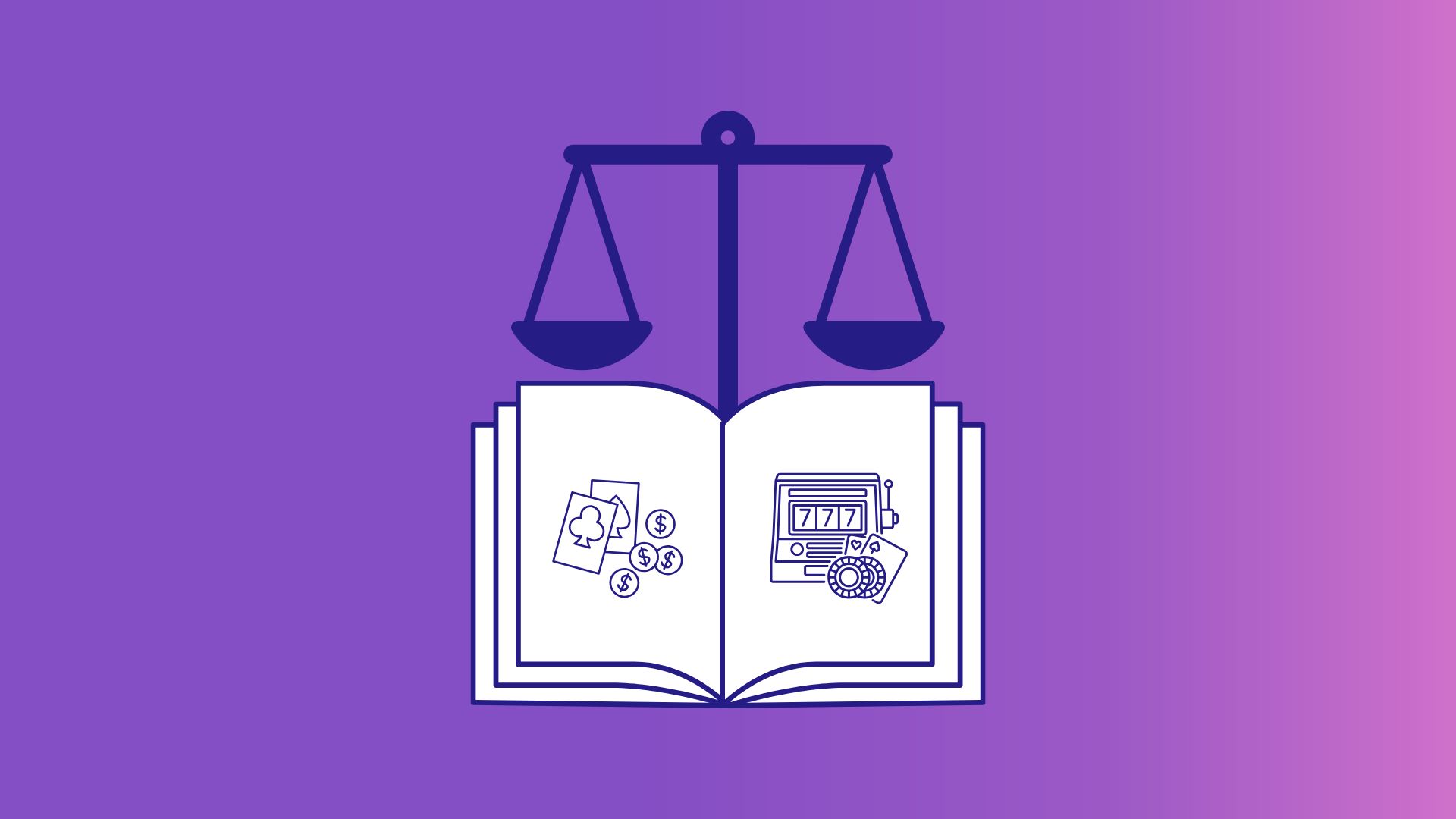How to Comply with Gambling Marketing Laws: A Strategic Guide for Businesses

Understanding Gambling Marketing Laws
Today, aspiring gambling operators are trekking a relatively easy path in acquiring their business permits. For instance, online gambling laws in the United States have eased up in the last five years. However, companies interested in gambling marketing must navigate advertising restrictions.
You can’t be trigger-happy in promoting gambling activities. Advertisers and promoters must comply with specific gambling advertising laws. These legalities help protect the industry, particularly in these two main aspects:
- Consumer protection: Online casinos and sports gambling activities have age requirements. As such, it’s discouraged to advertise gambling to vulnerable audiences like minors.
- Responsible gambling: The gambling industry must promote responsible gambling practices. Gambling advertisers must encourage people to practice moderate or safe gambling.
Staying in your lane, legal-wise, leads to long-term success in the gambling industry. You build brand credibility, helping you avoid legal consequences and reputation damage. All businesses in traditional gambling and iGaming sectors should follow marketing regulations.
Regulatory Frameworks Across Key Markets
Before promoting your gambling brand, let’s first discuss the marketing regulations in each major gambling jurisdiction.
Gambling Marketing Regulations in the United Kingdom
In the United Kingdom, gambling advertising is mostly regulated by the UK Gambling Commission. Moreover, companies contracted to market gambling content should comply with the Advertising Standards Authority (ASA) advertising codes.
Here are key regulations surrounding gambling advertising in the UK:
- Gambling Act 2005: A sanctioned online casino gaming operator adheres to this gaming law. This act spells out gambling regulations in the UK, including traditional and digital advertising.
- Advertising codes: Gambling and casino operators comply with ASA’s advertising codes. This list provides policies for non-broadcast and broadcast advertisements.
In the UK, sports figures and celebrities are not allowed to appear in gambling ads. This is a strict regulation imposed by their own gaming authority.
Gambling Marketing Regulations in Malta
The Malta Gaming Authority (MGA) provides a specific set of regulations for gambling advertising. Online gambling advertisers should comply with these regulations, along with general rules pertaining to advertising.
Take a look at MGA’s marketing regulations:
- Commercial Communications Committee Guidelines: MGA launched its advertising committee in 2019. These guidelines prioritize player protection and responsible gaming.
- Malta Gaming Act: Covers general regulations for MGA’s sports gambling and online casino operators.
- Consumer Affairs Act: Covers important consumer rights and commercial practices.
- Broadcasting Act: Covers key regulations for sound and television broadcasting activities in Malta.
MGA’s regulations also evolve from time to time. Check their official website to stay updated on their policies.

Gambling Marketing Regulations in the United States
The United States takes a state-specific approach to regulating online gambling and sports betting. For example, the Professional and Amateur Sports Protection Act (PASPA) was an overturned federal law.
For US-based advertisers to conduct gambling advertising, they must comply with these regulations:
- Advertising and Marketing Basics: The Federal Trade Commission (FTC) doubles down on deceptive or unfair marketing practices.
- Endorsements and Testimonials: Covers FTC’s guidelines on the use of endorsements, reviews, and influencers.
- State-specific regulations: Each state can enforce its gambling advertising policies. Just recently, New York tightened its gambling advertising laws. Even the Illinois Gaming Board introduced new regulations.
Always visit FTC’s business guidance menu to check their marketing policies. Otherwise, stay updated on your state’s regulations on any marketing material and activities.
Gambling Marketing Regulations in Australia
Australia enforces a very strict gambling industry, including advertising timing and communications. For example, they ban gambling ads between 5 AM and 8:30 PM. This encapsulates the country’s stance on gambling and sports wagering ads.
Companies applying for gambling advertising in Australia should consider these regulations:
- Consistent gambling messaging: Online gaming service providers should communicate safe gambling practices. This applies to advertisements, direct marketing, and consumer communications.
- General advertising policies: The Australian Communications and Media Authority (ACMA) is in charge of advertisement policies. Gambling operators should comply with telemarketing laws and broadcasting rules.
Strict regulations around gambling advertising apply in Australia. There are ongoing regulatory proposals in the country, including a new gambling tax framework.
Gambling Marketing Regulations in Canada
Similar to the US, Canadian provinces can also enforce their gambling regulations. Advertising rules are provided for each applicable jurisdiction. Operators must know the regulations within their covered territory or province.
Here are key regulations surrounding gambling advertising in Canada:
- Provincial gaming commissions: Canada delegates specific gambling policies to each province or territory. For example, Ontario has its own set of gambling advertisement rules.
- Ad Standards: There are 14 provisions in the Canadian Code of Advertising Standards. This list covers both traditional and online advertising activities.
Canada’s gambling advertising policies are mostly focused on truth and fairness. Advertising agencies and affiliate marketer applicants must comply with these regulations.
Conducting Gambling Advertising on Different Channels
Each gambling advertising channel — whether traditional or digital — comes with specific requirements and regulations.
Digital Advertising
It’s not only sanctioned online casino gaming businesses that are capitalizing on digital ads. Even traditional casinos and sports betting operators are increasing their online visibility.
However, there are policies surrounding gambling ads and online sports betting. Here are common restrictions that major digital platforms share:
- Age-gating: Online advertisements go through age-gating technology. For example, your gambling ads may not reach minors or people below 18 years of age.
- Content restrictions: Promote responsible gambling and fact-check your ads. Factual ads are essential in running an iGaming content marketing campaign.
- Platform-specific policies: Each digital platform regulates its advertising content. For search results, look into Google’s gambling advertising guidelines. Affiliate marketers must avoid misleading claims when rolling out content and product links.
Furthermore, multimedia content and similar blog posts should be visible to the right target audience. It’s one of the essential tips in casino marketing strategies. Don’t waste resources on content that violates digital regulations.
Traditional Media
Traditional advertising is done through television, radio, and print materials. There are fewer forms of traditional media today, but they still hold a unique level of authenticity.
An advertising company interested in the gambling space must comply with traditional regulations. Here are key guidelines you should adhere to:
- Time restrictions: Most federal laws and jurisdictions prohibit gambling ads during peak hours. For example, Australia doesn’t broadcast gambling ads from 8 AM to 5 PM.
- Content restrictions: A casino or sports betting operator must display responsible gambling messages. Lines like “Gamble Responsibly” should be shown during or after the promotional material.
- Brand endorsements: Some jurisdictions don’t allow celebrities or sports figures to promote gambling. Other jurisdictions just impose certain restrictions, such as the types of celebrities allowed. Brand endorsers should appeal more to adult audiences than younger people.
Companies contracted for gambling marketing must consider general advertising regulations. For instance, the Federal Communications Commission (FCC) regulates all advertising materials in the US.

Outdoor and Event Sponsorships
We’re seeing more outdoor advertisements for gambling businesses. Many organizations also tie up with gambling companies to promote casino games and fantasy sports. Still, some policies regulate these outdoor and event advertisements.
To conduct gambling advertising outdoors, you must follow these regulations:
- Display ads only in legal locations. Several jurisdictions limit gambling ads in sensitive or conservative locations. These places include schools, churches, playgrounds, and youth centers.
- Use friendly language and imagery. Outdoor gambling ads must avoid mature content, both in words and images.
- Follow sponsorship rules. Some jurisdictions still prohibit gambling sponsorships on sports teams and major events. Most likely, events with younger audiences might not accept gambling ads or sponsors.
Outdoor ads and event sponsorships can drastically increase visibility. However, it’s essential to follow the rules so as not to waste resources and money.
Steps to Ensure Compliance in Gambling Marketing
A successful gambling company approach gambling advertising in a structured way. You have to develop a culture of compliance, starting with the licensure process.
Entering the gambling marketing space could be a costly application process. After that, the possibility of losing your license could be even more costly.
Ensuring compliance in gambling marketing is the key to sustainable growth. Here’s how you can do this:
- Hire an experienced legal counsel. The gambling space is still a sensitive industry. Seek legal expertise to ensure that you don’t step over the lines.
- Do background checks on your partners. Review their vendor licensure documents, litigation history, and executed contract history.
- Outline your compliance framework. Compliance must be present in the entire corporate structure. This starts with the licensure process and goes down to the hiring of company officials.
- Keep all records and transactions. Be prepared for a voluminous document production. Gambling regulators require record-keeping of all transactions and advertisements.
- Stay updated on regulatory changes. The state gambling advertising licensure process is just the start. Maintain your compliance to avoid penalties from gambling and advertising regulators.
Regulators enforce strict policies to get an advertising licensee authorized. As a gambling business, you want marketing partners that are fully licensed and credentialed.
We recommend outsourcing tasks to reputable iGaming marketing agencies like Fortis Media. These gambling marketing experts can help you stay advertising-compliant on search engines and social media. This way, you avoid penalties and even gain significant interest from other sponsors.

Common Pitfalls in Online Gambling and Online Sports Betting Marketing
It’s normal to encounter detours in your gambling marketing venture. However, there are common miscues you can avoid — if you know what these are. Don’t worry, we’re here to help you out.
Avoid these errors and pitfalls when running a gambling marketing campaign:
- Ignoring licensing requirements: Many moving parts accompany vendor licensure requirements. Along with the initial application fee, you must prepare a large volume of documents.
- Overlooking responsible gambling: Advertisers should promote self-exclusion tools and moderate gambling. Regulators look at this aspect when granting and renewing gambling licenses.
- Neglecting data security: Public participation is already given in any form of advertisement. Ensure data protection practices in promoting content on social media and other digital platforms.
- Failing to instill a compliant culture: Being compliant starts from the roots. Update the fairness of your gambling machines. Maintain user security on digital platforms. Follow messaging policies when advertising any gambling content.
The gambling market is a complex landscape to navigate. That’s why businesses outsource tasks to gambling and sportsbook marketing experts like Fortis Media. These agencies can future-proof your gambling marketing strategies.
Of course, just ensure to do background checks on marketing partners. Review their credentials and experience. Schedule consultations with them before committing to a long-term contract.
Key Takeaways
Don’t waste your resources on illegal gambling advertising practices. Don’t thread that needle.
Instead, take no shortcuts and follow every gambling marketing policy. Promote responsible gambling in your messaging and branding. When you protect your players, you also protect your gambling brand.
We also recommend consulting with legal experts and marketing agencies. For instance, Fortis Media is a search marketing agency that specializes in iGaming and sportsbook niches. You can outsource marketing tasks to them and they’ll ensure that you stay compliant with advertising policies.
FAQs
What legal elements must be included in gambling advertisements?
Gambling advertisements must follow legal requirements, including age restrictions, responsible gambling messages, licensing information, and clear disclaimers. Geographic restrictions could also come into play, along with platform-specific policies on social media, search engines, traditional broadcasting channels, billboards, and public transit ads.
How can a business stay updated on changes in gambling marketing laws?
Hiring legal counsel, subscribing to regulatory newsletters, attending advertising-related conferences, and monitoring regulatory websites can help gambling businesses stay updated on gambling advertising laws. Alternatively, you can also work with gambling marketing agencies to ensure the compliance of your marketing and promotional materials.
Are there specific rules for online vs. offline gambling advertising?
Online gambling advertising focuses more on content and messaging restrictions, while offline gambling advertising doubles down on timing and location restrictions. Online platforms also require gambling advertisers to exercise data privacy frameworks, particularly in the collection and use of consumer data.
What are the consequences of failing to comply with gambling marketing laws?
Heavy fines, license suspension or revocation, criminal charges, and civil litigation are some of the common consequences of failure to comply with gambling marketing regulations. Moreover, non-compliance could lead to reputational damage, causing negative reviews, an increase in customer churn rate, and loss of revenue.
Read our other articles

Google March 2025 Core Update: iGaming Industry Impact with Real Cases


Benefits of Enterprise SEO: Why Large-Scale Businesses Need It


B2B SaaS SEO: Best Practices and Strategy for 2025






